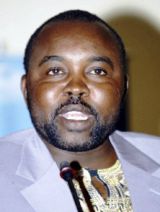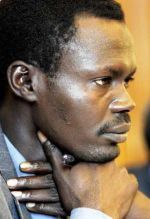For the past month, negotiations in Darfur between the insurgent groups and the Sudanese government have stalled due to the troubling split in the Sudanese Liberation Army (SLA), the largest political party in the region.
The two factions are led by former SLA leader Abdul-Wahid Mohamed el-Nur and his former deputy Minni Arcua Minnawi. Both men struggled for control of the party after a contested party election in which Minni prevailed.
The international community has made numerous efforts to mediate between the two sides, including representatives from the United States, United Nations, and African Union.
Unfortunately, despite the urgency of the situation, the two rival leaders of the SLA factions initially refused to set aside their differences in order to achieve peace with the government. They had intended to negotiate separately with the Sudanese government, instead of pursuing a joint peace agreement.
Damanga welcomed the news that the two SLA leaders have been able to agree to work on a common position for peace negotiations. Damanga urges the leaders and their factions to put the greater good of all Darfurians ahead of other agendas in order to achieve the most important goal – peace in Darfur.
Unity among the SLA members is seen as critical to negotiating an end to the conflict between Darfurians and the government-backed militia. The SLA factions collectively include many ethnic groups and approximately 40 tribes. The four major tribes split between the two leaders.
The former, unified SLA pursued several goals with respect to the Sudanese government.
Although negotiations between rebel groups and the Sudanese government have been ongoing for two years, little progress has been made.
However, as a positive gesture, Vice President Silva Kiir visited the U.S. last month and met with U.S. government officials and Darfurians living in the U.S. in an effort to establish ties. Kiir is a member of the new Sudanese peace government who wishes to resolve the conflict in Darfur. Kiir is a founder of the Sudan People’s Liberation Movement and its Army (SPLM), which earlier this year reached a peace agreement with the Khartoum government after decades of fighting.
The Damanga Coalition for Freedom and Democracy joins many others in the international community in expressing disappointment and concern about the split within the SLA party.
Party leaders should be building unity, not further conflict. They should be bringing ethnic groups together, not building factions along ethnic lines. But instead, they are focused on a power struggle that only strengthens the position of the Sudanese government.
At this crucial time unity is more important than ever. Signs of internal conflict can be used by the government to distract from the real issue—peace in Darfur.


 SLA leader Abdul-Wahid Mohamed el-Nur
SLA leader Abdul-Wahid Mohamed el-Nur SLA leader: Minni Arcua Minnawi
SLA leader: Minni Arcua Minnawi